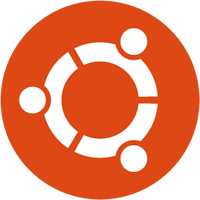 I hit a number of gotchas when upgrading my home and business web server from jessie to stretch, here they are in no particular order. Hopefully will save you some hair pulling…
I hit a number of gotchas when upgrading my home and business web server from jessie to stretch, here they are in no particular order. Hopefully will save you some hair pulling…
Broken MariaDB install
Debian now ships with MariaDB by default, but when I upgraded mariadb-server would not install, meaning their were loads of broken dependencies. Dpkg exited with an error status, but with no indication as to what the actual error actually was.
Fixes suggested elsewhere (purging and reinstalling, moving /var/lib/mysql away and reinstalling, etc) did not help.
Eventually, I was able to manually execute mysql_install_db, which actually gave me some output. For me, the problem seemed to have been caused by the slow query logging entries, which are either unsupported in MariaDB or are named something else (I’ve not had a chance to check).
I commented out the following lines as follows:
# log_slow_queries = /var/log/mysql/mysql-slow.log
# long_query_time = 2
# log-queries-not-using-indexes
… and apt-get was able to install the package.
Isolated /tmp
The version of systemd shipping with Debian 9 includes some security enhancements, including PrivateTmp, which isolates the temporary directory from users.
So, if you use your tmp directory to store e.g. cache data when developing websites, you’re going to need to store this somewhere else, otherwise file_exists and other file functions will not be able to read or write to them.
PHP 7
Ooooooo… boy.
Biggest hitter by far for me was that Debian 9 now ships with PHP7. Usefully, 5.6 is still available, so you have to switch to 7 manually (which means installing all the appropriate module again). Gotcha here is the mysql extension has been entirely removed, good thing too… however, if you’ve been running your server for a while like I have, you’re going to have a metric shittonne of things that need to be upgraded in order to work. Biggest pain in the bum was my ownCloud 8 server (made harder by the fact you can’t cross major versions in an upgrade, and the releases for those versions were no longer available until I nudged someone on IRC, also, pro tip, do the upgrade on PHP 5).
For scripts that either don’t have newer versions, or legacy stuff you don’t have time right now to allocate significant dev resources to, there is a mysql->mysqli shim available. This seems to work quite well in most cases, although of course it should be fairly high priority for you to migrate to PDO or similar!
Elgg and PHP 7
If you’re building sites on the 1.x.x branch of Elgg, you’re either going to have to upgrade to Elgg 2.x to run on PHP7, or use the shim.
I only have development sites running on PHP 7 at the moment, all of my clients that use < Elgg 2 are running on older PHP releases for now, but the shim works well in development and until I can manage those upgrades. If you use the shim you may need to comment out the following lines in executeQuery() in engine/classes/Elgg/Database.php:
if (!is_resource($dblink)) {
throw new \DatabaseException("Connection to database was lost.");
}
…since the resource returned by the shim is a different type than expected.
That’s all so far, hope this will save you some stress!



